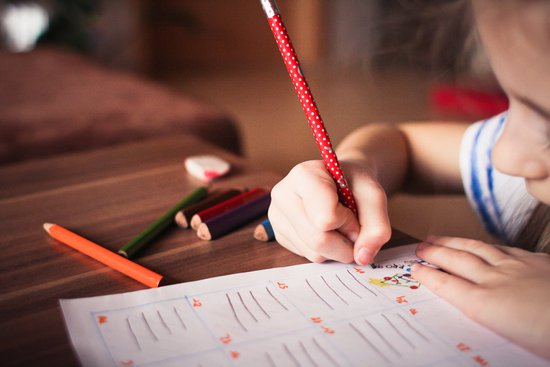
Ready for school
As your child heads towards their first school year, you may be starting to think about whether they will be ready to take this next big step. Your child’s kindergarten teacher will also be observing their ‘school readiness’, and will discuss their thoughts around your child’s school readiness with you. So what exactly does school readiness mean?
A child may be considered ‘school ready’ when they have achieve a certain level of development that will allow him or her to cope with – and even thrive in – the school environment.
In the past, it was thought that a child is ‘school ready’ once they have mastered basic academic skills. It is now known that directly teaching academic skills in the early years is not, in fact, helping children develop cognitive skills any sooner.
The more critical building blocks for school readiness have been a topic of much interest in recent years in the fields of child development, education and well-being. With knowledge of these building blocks, caregivers and early educators may feel better equipped to foster school readiness during a child’s pre-school years.
The most significant factor when it comes to school readiness relates to a child’s social-emotional development. This is the part of development that relates to your child’s understanding of who they are, what they are feeling, and what they can expect from others. Social-emotional skills are at the heart of all social interactions, and directly link to a child’s feelings of self-confidence and the ability to make and maintain friendships.
Healthy social-emotional development is sometimes described as the ability to:
– make and maintain appropriate relationships
– experience a range of emotions, while feeling that those emotions are manageable
– express ideas and emotions
– be curious and willing to learn, explore and interact with the world
Children with well-developed social-emotional skills are also considered to be more able to:
– display empathy
– manage tough feelings, such as disappointment or frustration
– demonstrate resilience
– develop self-esteem and feel confident in themselves
– become independent with age-appropriate tasks
– make friends and
– succeed in school
ALL areas of development (thinking skills, motor skills, play skills, social interaction skills and language development) are directly influenced by how a child feels about himself and how he or she is able to express his or her own ideas and feelings.
Thissocial-emotional development occurs through a child’s early experiences, particularly through their relationships with primary caregivers. These early experiences and interactions influence a child’s social-emotional development, and upon how their whole brain develops.
So how can we create early experiences and interactions that foster social-emotional development?
Parents, caregivers and and early educators can support development by exposing their child to a variety of materials and spaces where the child can experiment and play, by following the child’s interests, by setting up situations where the child can make appropriate choices, and by providing lots of opportunities for sensory, hands-on experiences. The aim is to allow children to explore, create and discover, and develop a love of learning – thus securing the necessary foundation skills for a successful education.
As we support a child’s social-emotional development, the child’s natural interests, curiosities, confidence and brain connections lead them towards developing other valuable ‘school skills’, such as:
– speech and language skills such as the ability to express our ideas and emotions clearly, and understand other people’s ideas and emotions
– phonological (sound) awareness including listening to language and looking at books
– the ability to encounter problems in play, and overcome these through regulating our emotions and communicating with another person.
So what happens when a child requires more support to get ‘school ready’?
For some children, social-emotional development may not occur as naturally as for his or her peers. In these cases, either extra input, or a slightly different type of input, may be required for that child to reach the social-emotional milestones required for school.
Some families find it helpful to access early intervention services in the year leading up to school, to gain ideas around supporting their child’s individual needs. Early intervention services that may be helpful in preparing for school may include the following:
- Screening assessments – a Paediatric Speech Therapist and/or Occupational Therapist will be able to complete a basic set of screening assessment tasks with your child to determine where they are currently performing with a range of social, communication and play skills, in order to guide you around what interventions may be of benefit.
- Formal assessments – when planning to commence at a particular school, some families are encouraged to have formal assessment completed in regards to their child’s language, social, and/or cognitive development.
- Individual therapy – individual Speech Pathology, Occupational Therapy, and/or Psychology sessions are sometimes recommended by a child’s kinder teacher, to address certain areas of need.
- Social Skills Groups – often a child is able to demonstrate a good range of social-emotional skills with supportive adults, such as their kinder teachers or caregivers, but have things ‘fall apart’ when around other children. A play-based social skills group can be a positive forum for practising social-emotional skills with peers.
Alyssa Mann, Speech Therapist
Sensational Kids

